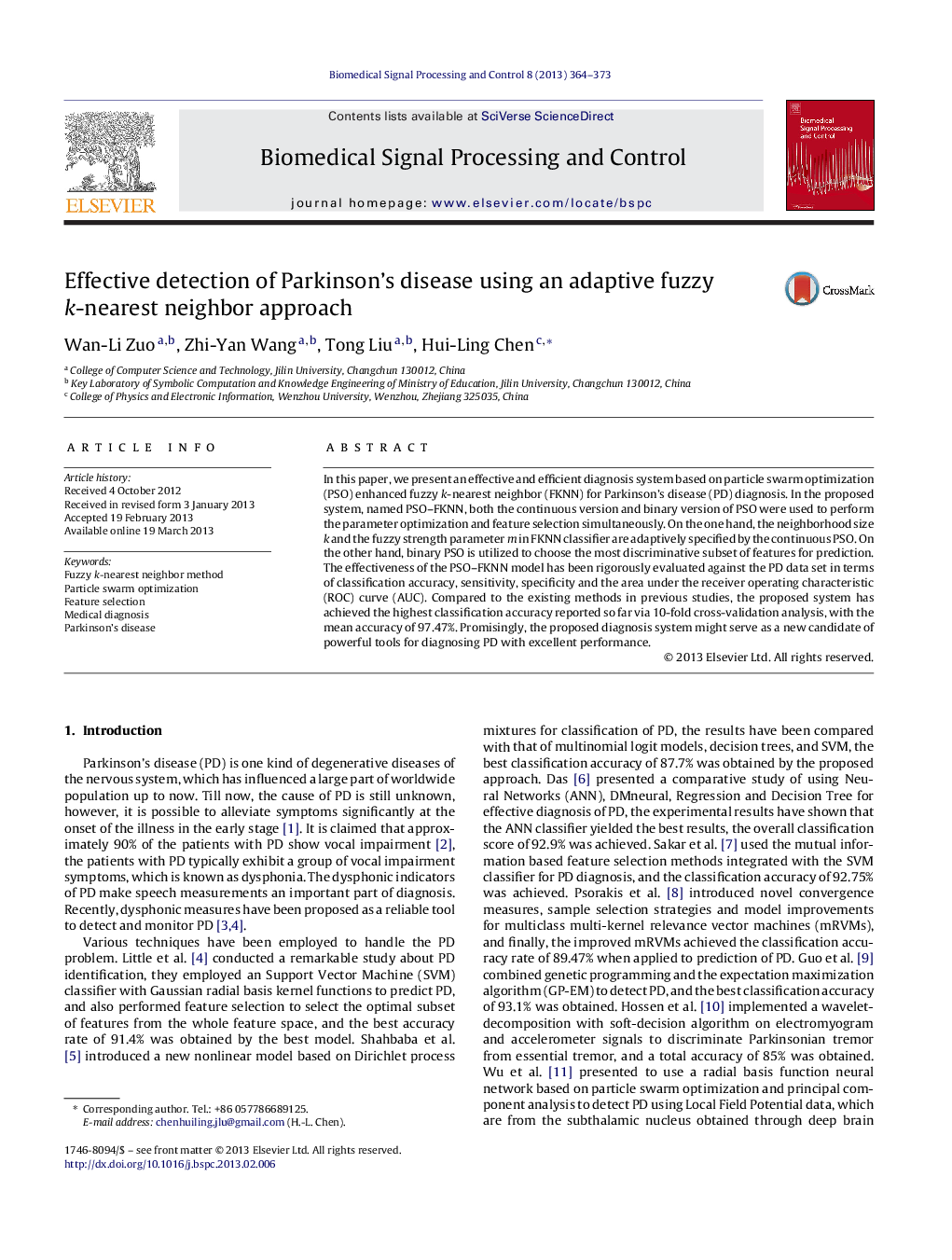| Article ID | Journal | Published Year | Pages | File Type |
|---|---|---|---|---|
| 558873 | Biomedical Signal Processing and Control | 2013 | 10 Pages |
In this paper, we present an effective and efficient diagnosis system based on particle swarm optimization (PSO) enhanced fuzzy k-nearest neighbor (FKNN) for Parkinson's disease (PD) diagnosis. In the proposed system, named PSO–FKNN, both the continuous version and binary version of PSO were used to perform the parameter optimization and feature selection simultaneously. On the one hand, the neighborhood size k and the fuzzy strength parameter m in FKNN classifier are adaptively specified by the continuous PSO. On the other hand, binary PSO is utilized to choose the most discriminative subset of features for prediction. The effectiveness of the PSO–FKNN model has been rigorously evaluated against the PD data set in terms of classification accuracy, sensitivity, specificity and the area under the receiver operating characteristic (ROC) curve (AUC). Compared to the existing methods in previous studies, the proposed system has achieved the highest classification accuracy reported so far via 10-fold cross-validation analysis, with the mean accuracy of 97.47%. Promisingly, the proposed diagnosis system might serve as a new candidate of powerful tools for diagnosing PD with excellent performance.
► An efficient diagnosis system based on adaptive fuzzy k-nearest neighbor approach is proposed for Parkinson's disease (PD) diagnosis. ► Both the continuous and binary PSO are used to perform the parameter optimization and feature selection simultaneously. ► The effectiveness of the system has been estimated on a PD data set in terms of AUC, classification accuracy, sensitivity and specificity. ► We have achieved the much better performance than the existed methods in literature.
